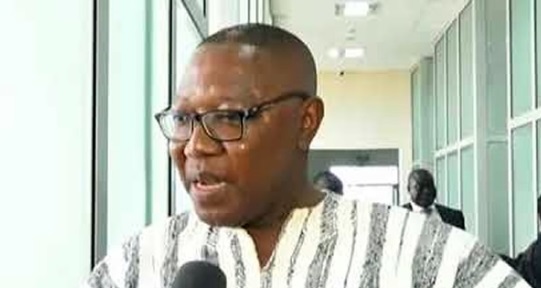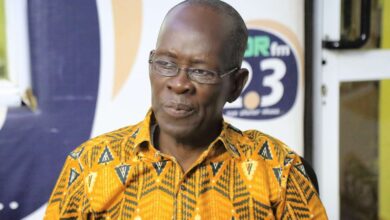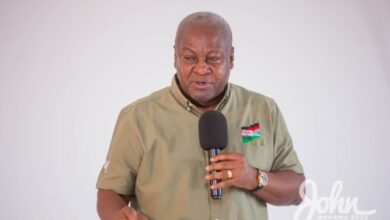The State of Basic Education in Ghana: A Call for Immediate Action-Dr. Clement Apaak
Basic education is foundational to lifelong learning and human development, and is vital for the future of any nation. It encompasses a range of educational activities that help students meet their basic learning needs. In Ghana, basic education is formally structured, consisting of preschool, primary (Classes 1-6), and Junior High School (JHS) (Forms 1-3), and is a compulsory part of the national education system.
Challenges Facing Basic Education in Ghana
Unfortunately, under the Akufo-Addo/Bawumia government, basic education has suffered nearly eight years of neglect, resulting in a crisis that has led to:
Dilapidated infrastructure: Over 5,000 schools are still under trees due to a severe infrastructure deficit.
Lack of textbooks: Despite the introduction of a new curriculum six years ago, many schools still lack adequate textbooks.
Furniture deficit: Over two million pupils are without proper furniture in basic schools.
Delayed capitation grants: Payments have been irregular, with arrears accumulating for as many as eight terms.
Poor nutrition: Inadequate funding for the school feeding program has led to severe nutrition challenges, compounded by government’s heavy debt to caterers.
Teacher shortages: There is a critical shortage of teachers, particularly in rural and underserved areas.
Inadequate supplies: Teachers often go without lesson notebooks and other essential supplies, forcing them to purchase these items out-of-pocket.
Lack of sanitation facilities: Many schools still lack basic sanitary facilities, and there are overdue payments for water and electricity bills.
John Dramani Mahama’s Commitment to Revitalizing Basic Education
The National Democratic Congress (NDC), led by John Dramani Mahama, remains committed to achieving the full objective of Free Compulsory Universal Basic Education (FCUBE). The NDC’s plan prioritizes significant investments in the sector, aiming to expand access and improve the quality of basic education across the country. Below are key highlights of Mahama’s vision for revitalizing Ghana’s basic education system:
Bright Beginnings Initiative: Revitalizing early childhood education to ensure a smooth transition into primary school and lifelong learning.
Integration of Early Childhood Education: Establish a national policy integrating early childhood education into the broader basic education framework, supported by adequate infrastructure.
Department for Early Childhood Development: Create a dedicated department within the Ministry of Education to promote early childhood education.
National Edu-Care Programme (NEP): Establish early learning facilities in workplaces to support working parents.
Curriculum Reform: Revise the early childhood curriculum to focus on value-based education, psychomotor skills development, and essential life skills.
Promotion of First Languages (L1): Make first languages the medium of instruction in the early years of schooling to enhance learning outcomes.
Professional Development for Educators: Invest in comprehensive training programs for early childhood educators and introduce specialized courses in tertiary institutions to train facilitators.
Teacher Dabr3 Project: Provide housing facilities for teachers within new school buildings to improve retention and working conditions.
Incentives for Rural Teachers: Offer a special allowance of 20% of the basic salary for teachers who accept postings in rural and underserved communities.
Teacher Employment Reforms: Abolish the teacher licensure examination, scrap mandatory national service for teacher trainees, and restore automatic employment for newly qualified teachers.
Furniture for All Initiative: Address the furniture deficit by partnering with local carpenters and furniture makers.
Textbook Provision: Improve the pupil-to-textbook ratio by ensuring the timely distribution of curriculum-based textbooks.
Infrastructure Development: Launch an aggressive infrastructure program to replace schools under trees and rehabilitate dilapidated school buildings.
SmartStart Curriculum: Introduce a curriculum that emphasizes STEM, coding, digital literacy, and Technical and Vocational Education and Training (TVET).
Improved Funding for Schools: Ensure regular and timely payment of capitation and school feeding grants.
Digital Literacy: Enhance digital literacy by providing computer facilities and upgrading ICT laboratories in schools.
Solar Energy for Schools: Promote solar energy as the primary energy source for schools, ensuring a more sustainable and reliable power supply.
Immediate Action in the First 120 Days
John Dramani Mahama is committed to making tangible improvements in the education sector in the first 120 days of his presidency. Key actions will include:
National Consultative Conference on Education: Convene a nationwide conference to build consensus on the reforms needed to improve the education system.
Free Sanitary Pads Distribution: Begin the distribution of free sanitary pads to female students in primary and secondary schools to promote menstrual hygiene and improve school attendance.
Conclusion
John Dramani Mahama’s education plan is a comprehensive and synergistic approach to resetting Ghana’s education system, starting with a strong foundation in basic education. His track record in the education sector demonstrates his ability to deliver on these promises. Under Mahama’s leadership, Ghana’s education system will be revived and strengthened to ensure that every child has access to quality education, regardless of their background or location.
Signed
Dr. Clement Abas Apaak
MP/PC Builsa South
Deputy Ranking Member, Education Committee
NDC Manifesto Spokesperson on Education





